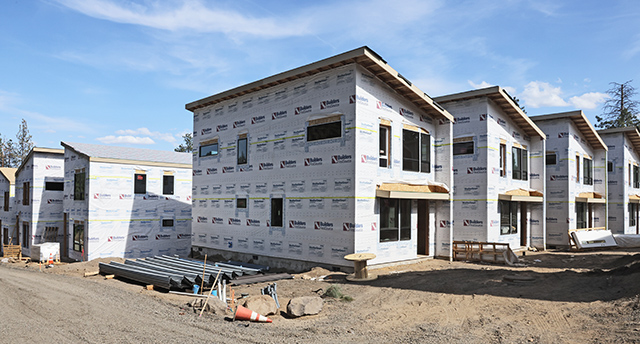Bend has pro genealogists
Published 5:00 am Sunday, March 11, 2012
Nancy Noble’s interest in genealogy was piqued when her mother-in-law died and left behind a neatly organized trunk full of greeting cards, newspaper clippings, wedding announcements and other records she had been collecting for decades.
“It took years for us to make sense of it all and to put it all together,” Noble said as she looked back on the moment that started a hobby she’d eventually turn into a postretirement career. “We got the disease by looking into our own family’s history, and now (we) want to do it for everybody.”
Noble, 67, is now one of two Central Oregon residents who are registered with the Association of Professional Genealogists, a national organization that keeps track of people who research family histories for a fee, and one of only 35 professional genealogists in the state.
Later this month, she plans to share information about what she calls “little known or little used resources” for people who’ve hit a roadblock while researching their family history (see “If you go”).
Catching the bug
Six million Americans watched a Feb. 3 episode of “Who Do You Think You Are” on which actors Martin Sheen and Emilio Estevez tracked their family history though parts of Spain and Ireland. That program was the second-most watched television show during the evening’s 8 p.m. time slot, according to the ratings tracking website ZAP2it.com, and beat perennial favorites like “Shark Tank” and “Kitchen Nightmares” to claim this honor.
Ancestry.com, which has helped produce this show’s third season, boasts more than 24,500 followers on its Twitter account and has more than 10 times that many followers on its Facebook page. And while this website claims to be the most popular genealogy website, a quick Google search will tell you it’s certainly not the only one out there.
Bill Bernardy, a professional genealogist who launched a business called Front Porch Genealogy in 2010, said the popularity of Ancestry.com and “Who Do You Think You Are?” reflects a growing interest in genealogy.
“Working on your family history has its own sense of satisfaction,” said Bernardy, 60, who did a presentation about his family history in high school but didn’t pick up the hobby again until about six years ago. “It’s like playing a game, working on a puzzle or something like that.”
Bernardy has traced his family tree back to ancestors who settled near Lake Michigan during the 1840s and from there to southwest Germany. During the final leg of his journey, Bernardy said he ran across a distant cousin who was working on her own family history and hit a roadblock.
“She didn’t know what happened to this one brother who went to America,” he said, adding that while the woman didn’t know what happened to her relative who emigrated to this country in the 1800s, she had done extensive research on the branches of her family that stayed in Germany.
Bernardy said he traded notes with the German woman and was able to extend his family tree back five generations in Europe. Though they’ve only communicated with each other online, Bernardy said he and his cousin have since made plans to meet in person later this year.
Tricks of the trade
Bernardy said a person who has spent a few years working on a family tree might want to take a look at someone else’s history. This is when a hobbyist might start thinking about making genealogy a career and registering with the Association of Professional Genealogists.
“Most people who do genealogy (on a professional basis) are self-taught and have lots of experience,” he said, adding that some professional genealogists further bolster their careers by taking special classes or obtaining a genealogical certification.
Bernardy said most people who are interested in putting together a family tree can find the information or contacts they need over the Internet through genealogy websites like Ancestry.com.
But not everything is available online, said Noble, who added that sometimes the answers can be in places one never would have thought to look.
Noble recalled how she was able to track down records from when her husband’s great-great-grandmother was committed to an Oregon mental institution in 1899. The century-old documents provided information about the clothes she was wearing and who came to visit her in the hospital in addition to information about her medical condition and treatment regimen.
She said if they hit a road block, people should also keep their eyes open for lesser-known public documents like FBI files, prison records, coroner’s inquests and the delayed birth records that were issued to people when the Social Security system was started. Records from private mortuaries and gravestone companies also help because they might shed light on who paid for someone’s final arrangements, she said.
“Every piece of these records will give you a tiny germ of information that could help you carry on to the next piece of your investigation,” Noble said as she talked about some of the information she plans to cover during her presentation to the genealogical society.
If you go
What: Professional genealogist Nancy Noble will tell the general public about “little-known or little-used” resources people can turn to when researching their family trees during an upcoming meeting of the Bend Genealogical Society.
When: 10 a.m. March 20
Where: Rock Harbor Villa’s Williamson Hall, 2200 N.E. U.S. Highway 20, Bend
Contact: 541-317-9553 or visit www.orgenweb.org/deschutes/bend-gs







